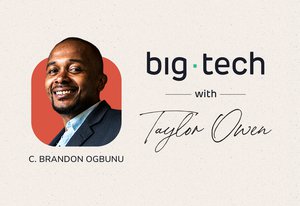Episode Description
Tech billionaire Peter Thiel is an enigmatic, controversial and hugely influential power broker in both Silicon Valley and the political arena. He is often seen as a libertarian, who at one point was exploring the idea of building floating stateless cities in international waters. But at the same time Thiel is very much an insider. He is actively involved in American politics, through funding political candidates, and in tech, through co-founding PayPal and Palantir, as well as supporting other venture capital projects, and is even funding an “anti-woke” university.
In this episode of Big Tech, host Taylor Owen speaks with Max Chafkin, author of The Contrarian: Peter Thiel and Silicon Valley’s Pursuit of Power. Chafkin’s study of Thiel seeks to understand how he has built a dual persona as a heroic Ayn Randian libertarian entrepreneurial superhero, on the one hand, and a vampiric supervillain, on the other. What has confused many about Thiel is how he seems to play on both sides of the political divide. When Thiel spoke at the Republican National Convention in support of Donald Trump, many on the left couldn’t square the contradiction of how, in Chafkin’s words, “a futurist who happens to be gay, who happens to be an immigrant, who happens to have two Stanford degrees, you know, support this, like, reactionary, anti-tech, you know, crazy guy from New York?” By seeking to understand what one of the most influential men in both tech and politics is about, as well as his beliefs and goals, perhaps we can better understand how our societies are being reshaped. And perhaps that understanding will make us better prepared to counteract those shifts in ways that serve the best interests of society rather than those of the powerful few.



